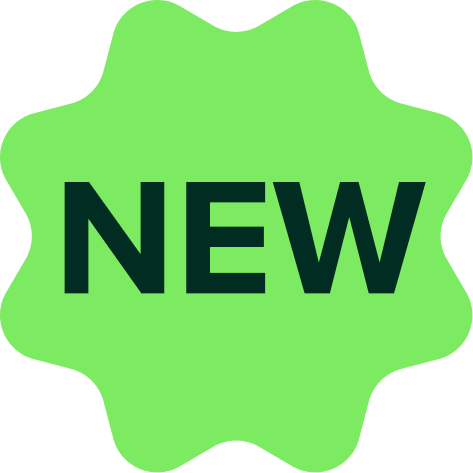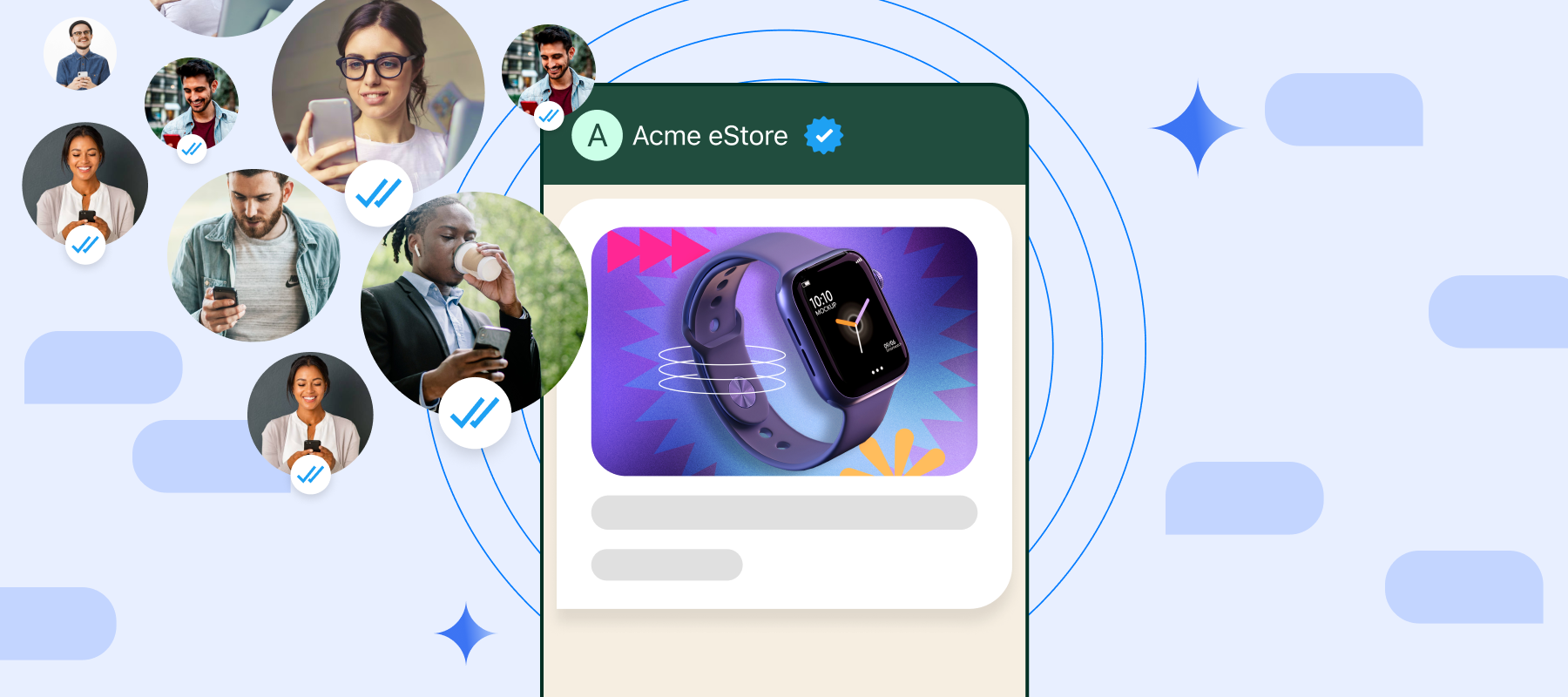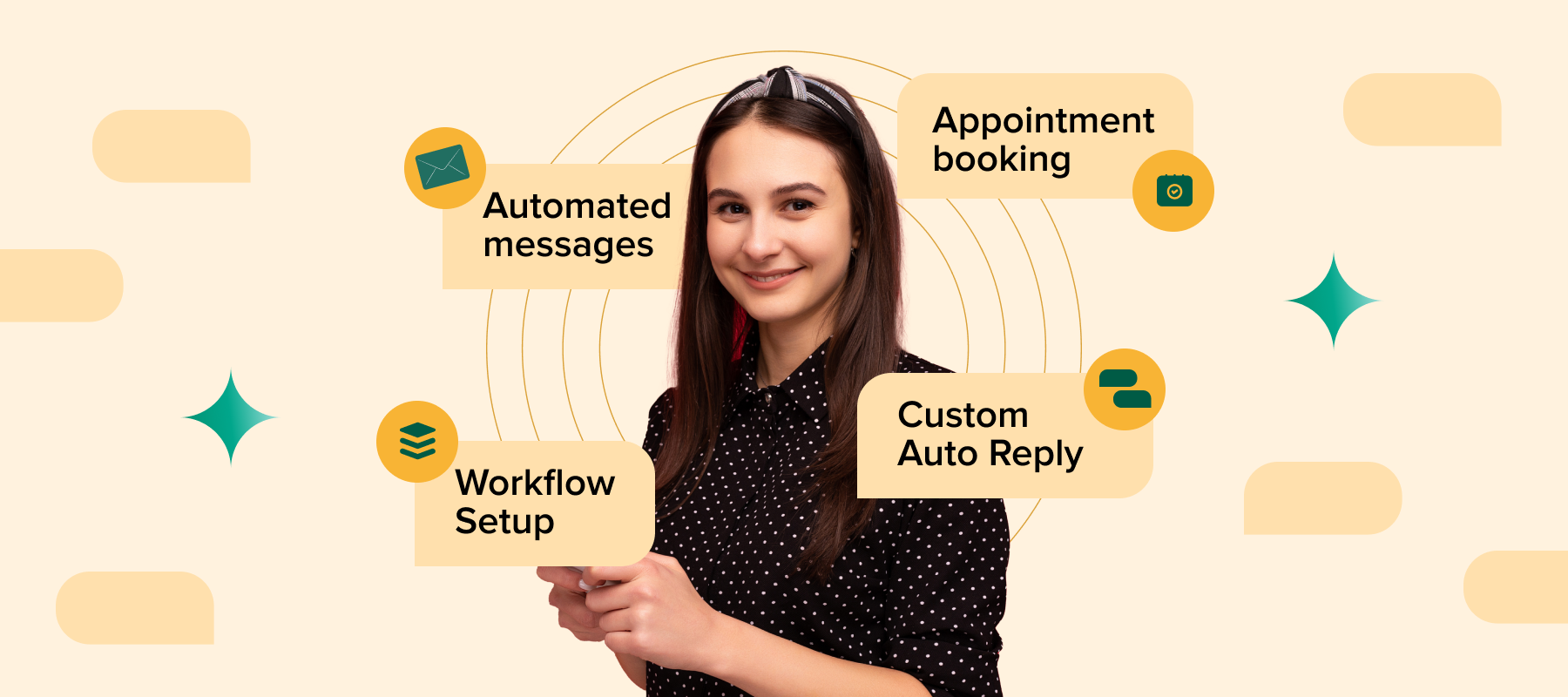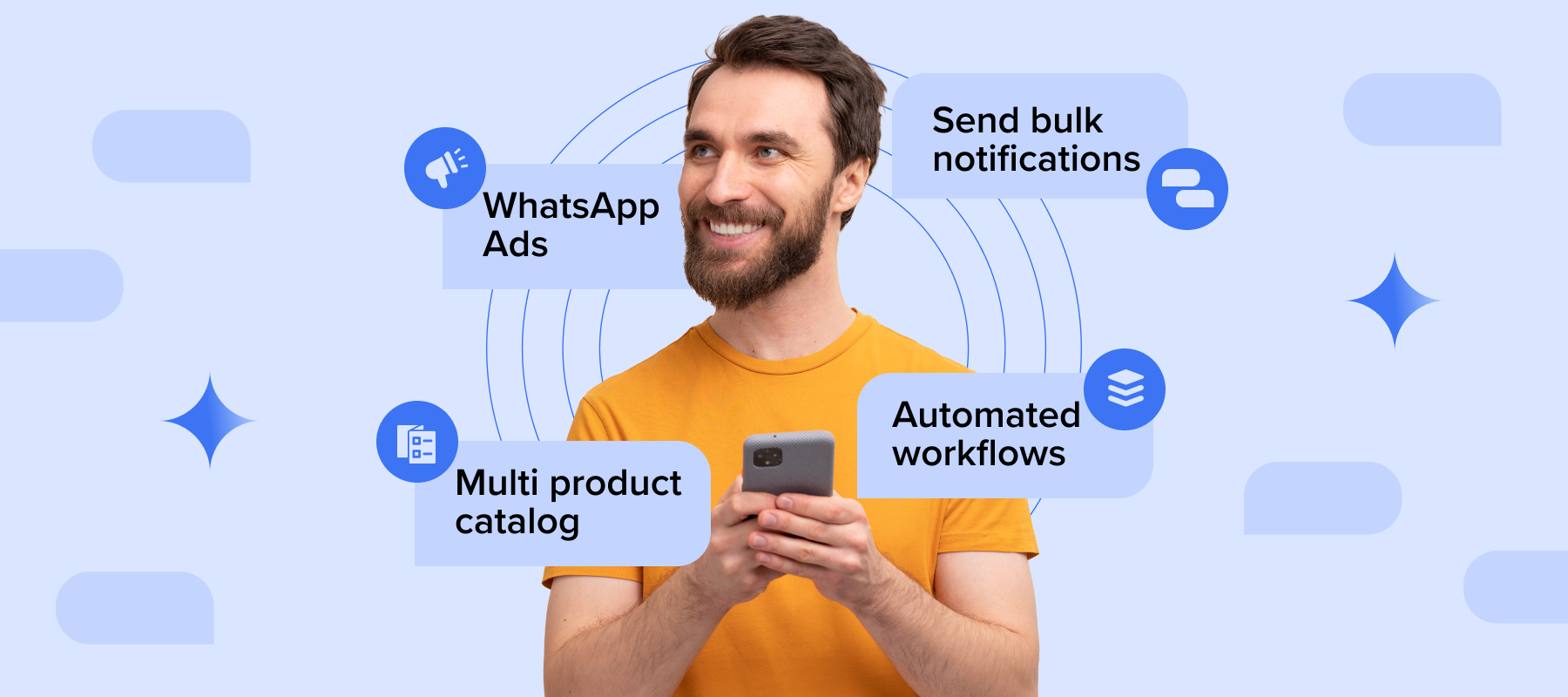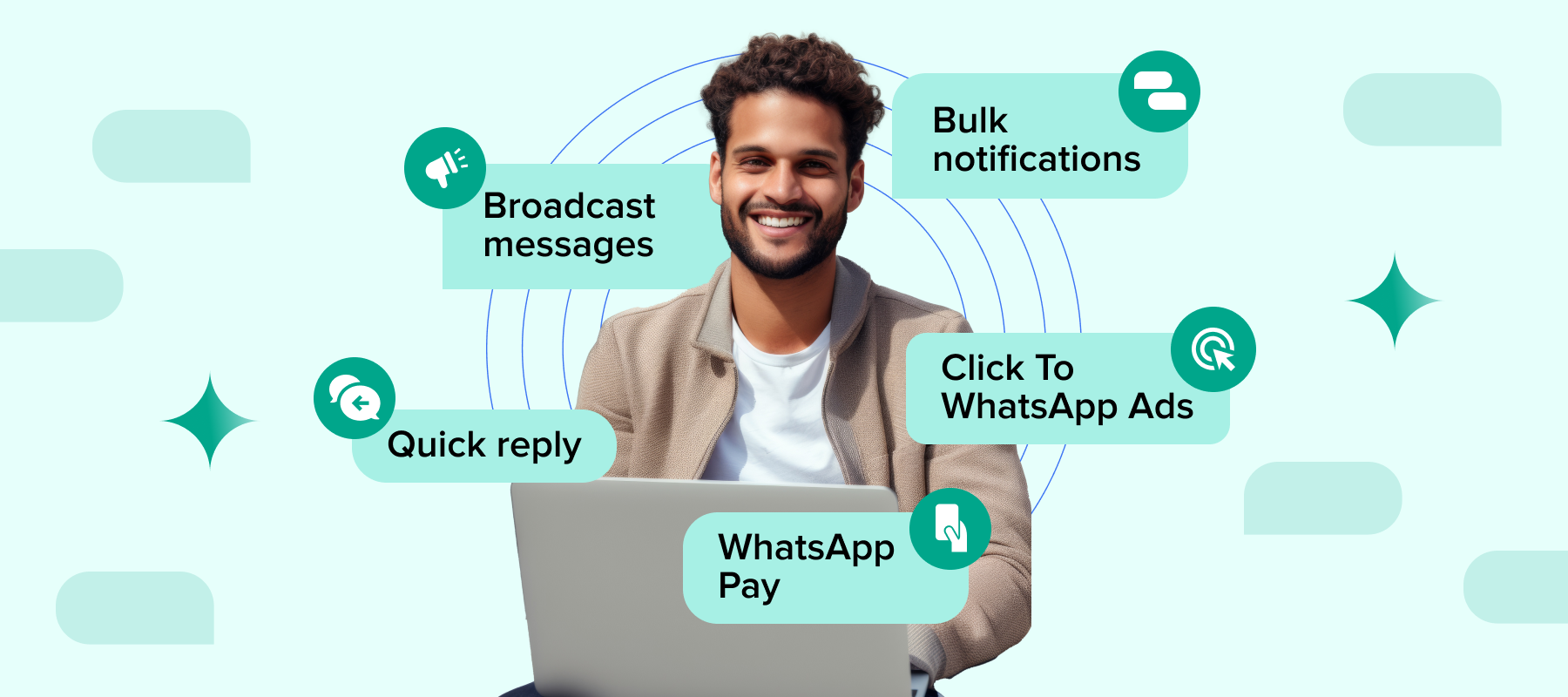Why Businesses are Turning to WhatsApp for Product Promotions
In a world where messaging has the power to shape buying decisions, WhatsApp’s unparalleled reach, personalization features, and ability to foster real-time conversations make it a game-changer for engagement. Whether it’s targeted offers, updates, or interactive campaigns, WhatsApp empowers businesses to connect meaningfully with their audience while driving measurable results. In this article, we’ll explore the various reasons why businesses are leveraging WhatsApp, the most popular messaging app, for product promotions and product launch on WhatsApp, to drive the conversational commerce journey.
Best Practices for Product Promotions with WhatsApp Broadcasts
Let’s say you’ve crafted an effective product promotion strategy, and are about to launch it. How can you ensure your message cuts through the noise and drives impact? With WhatsApp Broadcasts, you can seamlessly connect with customers and achieve exponential results at scale.
Let’s dive into these essential strategies to help your product promotions shine and keep your audience engaged like never before.
1. Personalization: Using Placeholders for Names and Details
Personalization is key to making your WhatsApp Broadcasts stand out. By leveraging placeholders for names, order details, or location specifics, businesses can create messages that feel uniquely tailored to each recipient. For example, instead of sending a generic “Check out our sale,” a personalized message for promotion like “Hi [Name], enjoy 20% off on your favorite items this weekend!” instantly grabs attention and builds a connection.
This strategy not only enhances engagement but also boosts trust, ensuring your promotions resonate on a personal level.
2. Timing: Optimal Times to Send Messages
Timing is everything when it comes to WhatsApp Broadcasts. Sending messages at the right moment can significantly enhance open and response rates. Consider your audience’s daily routines and preferences: for instance, promoting breakfast deals early in the morning or announcing weekend sales on Thursday evenings. Also, factor in time zones for global audiences to avoid untimely interruptions. By aligning your messages with your audience’s most receptive hours, you can maximize impact, ensuring your promotions not only reach but resonate with your customers.
3. Clear CTAs: Driving Actions Like Purchases or Sign-Ups
A compelling Call-to-Action (CTA) is the bridge between user interest and action. Whether you’re prompting customers to browse a sale, sign up for an event, or complete a purchase, your CTA should be concise, action-oriented, and visually distinct. Phrases like “Shop Now,” “Sign Up in One Tap,” or “Grab the Offer Today” encourage immediate action. Pair these with deep links to relevant pages or pre-filled forms to streamline the process and minimize friction, boosting your campaign’s success.
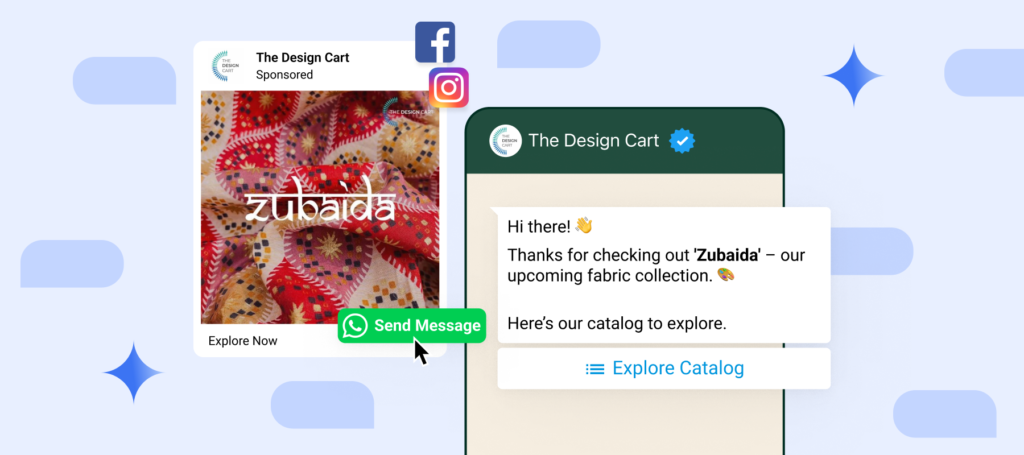
4. A/B testing to Refine Your Messaging Strategy
A/B testing helps pinpoint what works best for your audience. Test variations of your messages by changing the tone of text, CTAs, or multimedia elements to check what clicks with your audience. For example, one version could emphasize urgency with “Buy Now” while another offers a discount incentive. Analyze engagement metrics like clickthrough rates and conversions to identify top-performing strategies. Continuously iterating based on insights ensures your messaging strategy evolves to meet customer preferences and drives better results.
5. Avoiding Spammy Practices and Adhering to WhatsApp Policies
Avoid sending unsolicited or overly frequent messages, as this can alienate your audience and affect your brand reputation. Always obtain user consent before initiating contact and ensure your content provides value, whether it’s a promotion, update, or alert. Staying compliant with WhatsApp’s policies not only safeguards your account from penalties but also fosters a positive relationship with your audience, reinforcing their engagement over time.
Advanced Features with WhatsApp Business API
The WhatsApp Business API benefits businesses by enabling them to integrate it with their existing systems, unlocking advanced messaging capabilities tailored for seamless operations. Its versatility allows for personalized automation, efficient customer interactions, and engaging promotional campaigns. With features like rich media, quick replies on WhatsApp, and templates, businesses can enhance user experiences and streamline workflows. This makes it a valuable tool for scaling communication efforts and driving meaningful engagement.
1. Overcoming Limitations of the Standard WhatsApp Business App
While the Business App is ideal for small businesses managing conversations through a single device, the API is tailored for larger enterprises. It enables integration with CRMs, chatbots, and analytics platforms for automated workflows and enhanced customer interactions. For instance, a retail business using the API can send automated order confirmations and shipping updates to thousands of customers simultaneously, something the Business App cannot handle efficiently. The API thus bridges limitations by enabling enterprise-grade solutions.
2. Automating Responses and Integrating with CRMs
The WhatsApp Business API empowers businesses to automate responses for fast and consistent messaging. By integrating the API with Customer Relationship Management (CRM) systems, businesses can centralize data for personalized messaging, track customer interactions, and enhance follow-ups. For example, when a customer inquires about an order status, the API can automatically retrieve details from the CRM and respond instantly, eliminating manual effort. This seamless WhatsApp automation and integration improve efficiency, enhance the customer experience, and allow businesses to manage large volumes of inquiries effectively.
3. Scalability for Large-Scale Campaigns
The WhatsApp Business API is designed to handle large-scale campaigns with ease, enabling businesses to reach thousands or even millions of customers simultaneously. Unlike the WhatsApp Business app, which is limited in its messaging capacity, the API allows for automated message distribution, personalized content, and integration with other platforms. Whether you’re sending bulk promotions, customer updates, or reminders, the API ensures your messages reach a wide audience while maintaining consistency and efficiency, making it ideal for scaling marketing efforts.
Conclusion
With their ability to deliver targeted messages at scale while maintaining personalization, WhatsApp Broadcasts have become a game-changer for product promotions. By adhering to best practices, leveraging advanced features like automation and segmentation, and staying compliant with WhatsApp’s policies, businesses can not only amplify their reach but also build stronger relationships with their audience. As consumer expectations evolve, integrating WhatsApp Broadcasts into your marketing strategy isn’t just a competitive advantage, it’s fast becoming a need of the hour.
